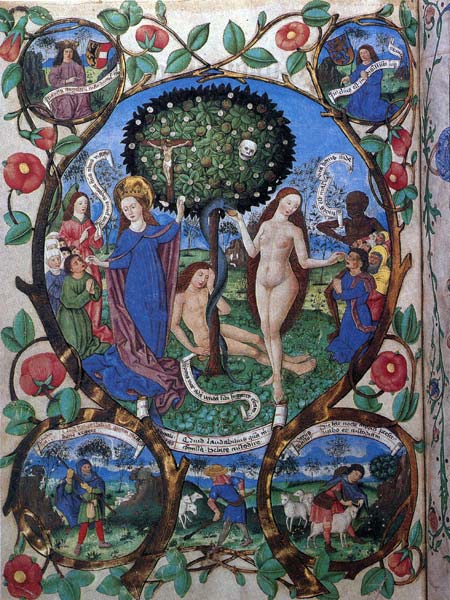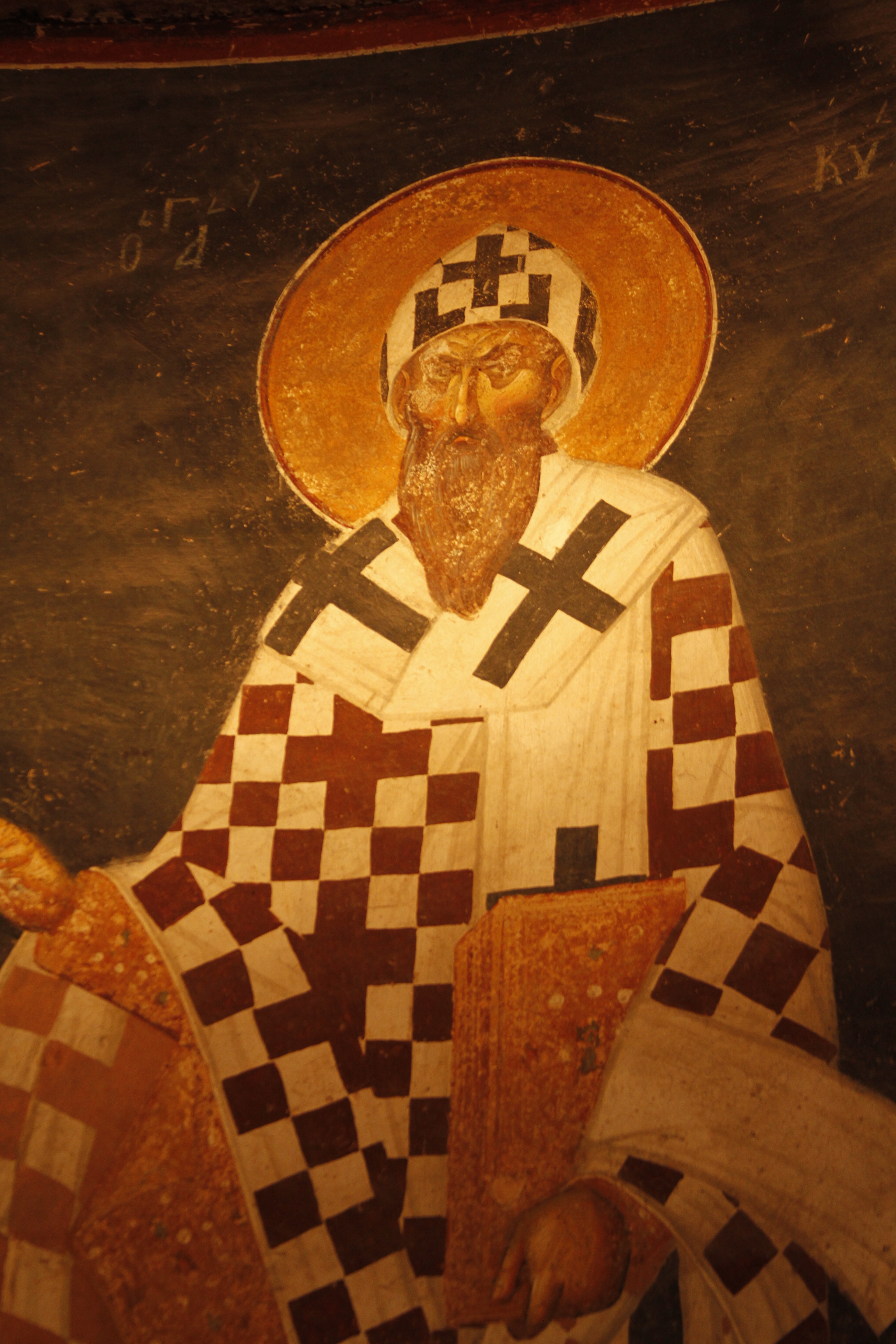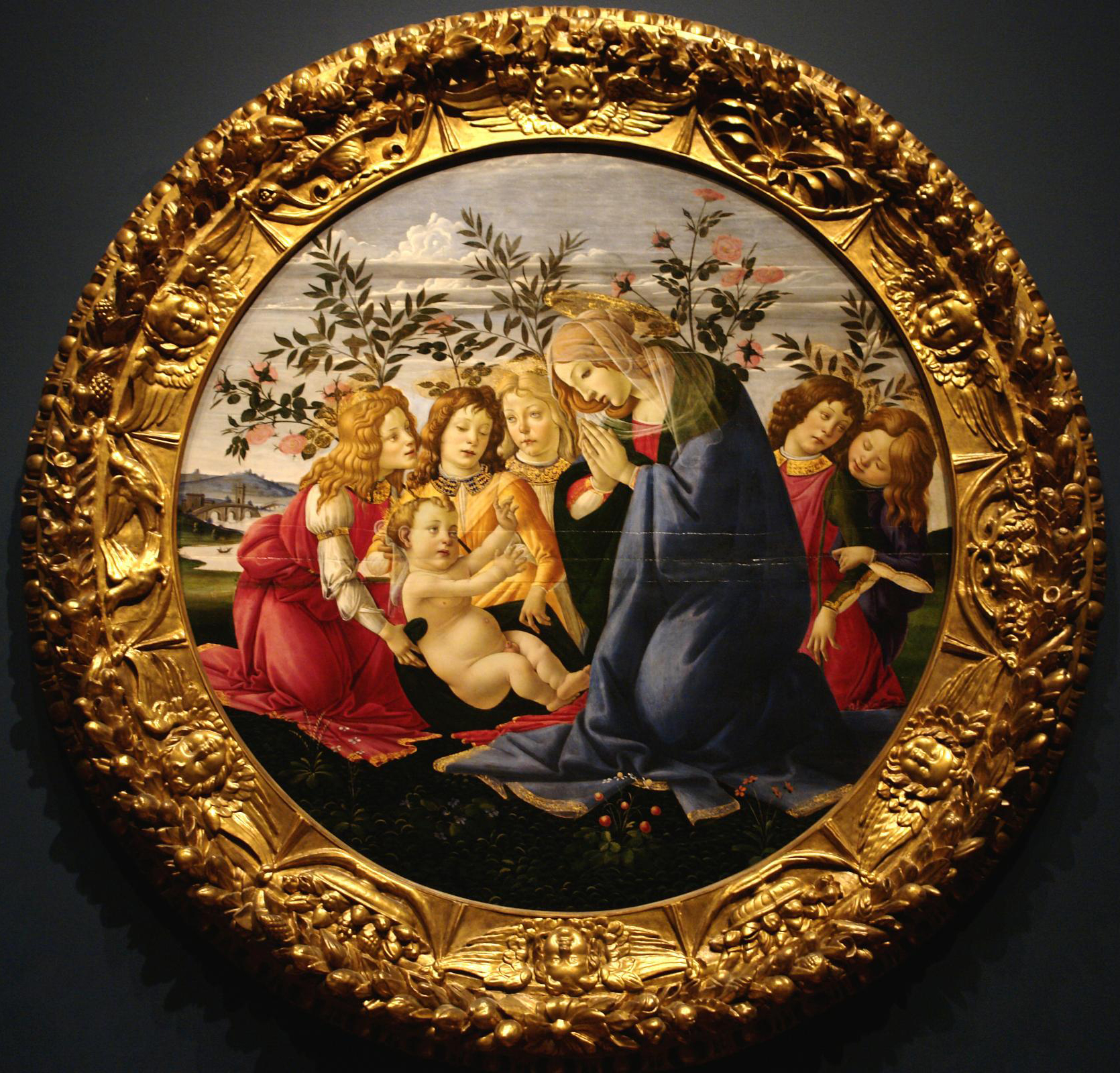|
Antipater Of Bostra
Antipater of Bostra () was a Greek prelate who served as Metropolitan bishop of Bostra in the Roman province of Arabia and was one of the foremost critics of Origen. He lived in the 5th century AD. Biography Little detail is known of Antipater's life. He was born early in the 5th century and was Metropolitan of Bostra by 457, succeeding Constantine who attended the Councils of Ephesus II (449) and Chalcedon (451). Antipater maintained links with Palestinian Monasticism, particularly through Euthymius the Great and his followers. He was a pronounced opponent of Origen, held in high esteem by his contemporaries both civil and ecclesiastical, and was rated among the authoritative ecclesiastical writers by the Fathers of the Seventh General Council (787). There have reached us, in the acts of this council, only a few fragments of his lengthy refutation of the "Apology for Origen" put together (c. 309) by Pamphilus and Eusebius of Caesarea. The work of Antipater was looked on as a m ... [...More Info...] [...Related Items...] OR: [Wikipedia] [Google] [Baidu] |
Catholic Church
The Catholic Church (), also known as the Roman Catholic Church, is the List of Christian denominations by number of members, largest Christian church, with 1.27 to 1.41 billion baptized Catholics Catholic Church by country, worldwide as of 2025. It is among the world's oldest and largest international institutions and has played a prominent role in the history and development of Western civilization.Gerald O'Collins, O'Collins, p. v (preface). The church consists of 24 Catholic particular churches and liturgical rites#Churches, ''sui iuris'' (autonomous) churches, including the Latin Church and 23 Eastern Catholic Churches, which comprise almost 3,500 dioceses and Eparchy, eparchies List of Catholic dioceses (structured view), around the world, each overseen by one or more Bishops in the Catholic Church, bishops. The pope, who is the bishop of Rome, is the Papal supremacy, chief pastor of the church. The core beliefs of Catholicism are found in the Nicene Creed. The ... [...More Info...] [...Related Items...] OR: [Wikipedia] [Google] [Baidu] |
Origenism
Origenism refers to a set of beliefs attributed to the Christian theologian Origen. The main principles of Origenism include allegorical interpretation of scripture, pre-existence, and subordinationism. Origen's thought was influenced by Philo the Jew, Platonism and Clement of Alexandria. Principles Creation Origen taught that creation is eternal, claiming that God created from eternity. He argued that God created four categories of intellectual beings: angels, luminaries, humans and demons. He interpreted the book of Genesis allegorically and was influenced by Philo the Jew. Trinity Origen believed that the persons of the trinity are immaterial and that the Son is the Wisdom of God and subordinate to the Father; for Origen, the Father has the highest rank over the other persons of the Trinity. Exegesis Origen believed that the words of the scriptures have multiple meanings, arguing that some parts of the Bible would be unworthy of God if they would be taken only litera ... [...More Info...] [...Related Items...] OR: [Wikipedia] [Google] [Baidu] |
New Eve
The New Eve (Latin: ''Nova Eva'') is a devotional title for Mary, the mother of Jesus. Since the second century, numerous Eastern and Western Church fathers have expressed this doctrinal idea as an analogy to the biblical concept of the New Adam. Mary's unique and necessary participation in the economy of salvation is expressed in the doctrine, particularly her faith at the annunciation of the archangel Gabriel, which facilitates the incarnation of Jesus Christ and human redemption. Early Church Fathers The forefathers of the early church looked to Paul's Letter to the Galatians 4:4-5: "But when the fullness of time had come, God sent his Son, born of a woman, born under the law, to ransom those under the law, so that we might receive adoption", and related this to the woman spoken of in the Protoevangelium of : "I will put enmity between you and the woman, and between your offspring and hers; They will strike at your head, while you strike at their heel." The church father ... [...More Info...] [...Related Items...] OR: [Wikipedia] [Google] [Baidu] |
Patrologia Graeca
The ''Patrologia Graeca'' (''PG'', or ''Patrologiae Cursus Completus, Series Graeca'') is an edited collection of writings by the Church Fathers and various secular writers, in the Greek language. It consists of 161 volumes produced in 1857–1866 by J.P. Migne's Imprimerie Catholique, Paris. Description The ''Patrologia Graeca'' is an edited collection of writings by the Church Fathers and various secular writers, in the Greek language. It consists of 161 volumes produced in 1857–1866 by J. P. Migne's Imprimerie Catholique, Paris. It includes both the Eastern Fathers and those Western authors who wrote before Latin became predominant in the Western Church in the 3rd century, e.g. the early writings collectively known as the Apostolic Fathers, such as the First and Second Epistle of Clement, the Shepherd of Hermas, Eusebius, Origen, and the Cappadocian Fathers Basil the Great, Gregory of Nazianzus, and Gregory of Nyssa. The 161 volumes are bound as 166 (vols. 16 and 8 ... [...More Info...] [...Related Items...] OR: [Wikipedia] [Google] [Baidu] |
Council Of Ephesus
The Council of Ephesus was a council of Christian bishops convened in Ephesus (near present-day Selçuk in Turkey) in AD 431 by the Roman Emperor Theodosius II. This third ecumenical council, an effort to attain consensus in the church through an assembly representing all of Christendom, Richard Kieckhefer (1989). "Papacy". '' Dictionary of the Middle Ages''. . confirmed the original Nicene Creed, * * * and condemned the teachings of Nestorius, Patriarch of Constantinople, who preferred that the Virgin Mary be called '' Christotokos'', "Christ-bearer", over '' Theotokos'', "God-bearer"; in contrast to Cyril of Alexandria who deemed ''Theotokos'' to be enough on its own. It met from 22 June to 31 July 431 at the Church of Mary in Ephesus in Anatolia. Background Nestorius' doctrine, Nestorianism, which emphasized the distinction between Christ's human and divine natures and argued that Mary should preferably be called ''Christotokos'' (Christ-bearer) over ''Theotokos'' (G ... [...More Info...] [...Related Items...] OR: [Wikipedia] [Google] [Baidu] |
Marian Devotions
Marian devotions are external pious practices directed to the person of Mary, mother of Jesus, by members of certain Christian traditions. They are performed in Catholicism, High Church Lutheranism, Anglo-Catholicism, Eastern Orthodoxy and Oriental Orthodoxy, but other Christian denominations mostly reject them. Such devotional prayers or may be accompanied by specific requests for Mary's Intercession of saints, intercession with God in Christianity, God. There is significant diversity of form and structure in Marian devotions practiced by different groups of Christians. Orthodox Marian devotions are well-defined and closely linked to liturgy, while Roman Catholic practices are wide-ranging—they include multi-day prayers such as novenas, the celebration of canonical coronations granted by the Pope, the veneration of icons in Eastern Christianity, and pious acts which do not involve vocal prayers, such as the wearing of scapulars or maintaining a Mary garden. Marian devotions a ... [...More Info...] [...Related Items...] OR: [Wikipedia] [Google] [Baidu] |
Book Of Genesis
The Book of Genesis (from Greek language, Greek ; ; ) is the first book of the Hebrew Bible and the Christian Old Testament. Its Hebrew name is the same as its incipit, first word, (In the beginning (phrase), 'In the beginning'). Genesis purports to be an account of the Genesis creation narrative, creation of the world, the early history of humanity, and the Jews#Origins, origins of the Jewish people. In Judaism, the theological importance of Genesis centers on the covenants linking God in Judaism, God to his chosen people and the people to the Promised Land. Genesis is part of the Torah or Pentateuch, the first five books of the Bible. Tradition credits Moses as the Torah's author. However, there is scholarly consensus that the Book of Genesis was composed several centuries later, after the Babylonian captivity, Babylonian Babylonian captivity, captivity, possibly in the fifth century BC. Based on the scientific interpretation of Archaeology, archaeological, Genetics, genetic, ... [...More Info...] [...Related Items...] OR: [Wikipedia] [Google] [Baidu] |
Genesis Creation Narrative
The Genesis creation narrative is the creation myth of both Judaism and Christianity, told in the book of Genesis chapters 1 and 2. While the Jewish and Christian tradition is that the account is one comprehensive story, modern scholars of biblical criticism identify the account as a composite work made up of two different stories drawn from different sources. The first account, in Genesis 1:1–2:3, is from what scholars call the Priestly source (P), largely dated to the 6th century BC. In this story, Elohim (the Hebrew generic word for "god") creates the heavens and the Earth in six days, and then rests on, blesses, and sanctifies the seventh (i.e., the Biblical Sabbath). The second account, which takes up the rest of Genesis 2, is largely from the Jahwist source (J), commonly dated to the 10th or 9th centuries BC. In this story, God (now referred to by the personal name Yahweh) creates Adam, the first man, from dust and places him in the Garden of Eden. There, ... [...More Info...] [...Related Items...] OR: [Wikipedia] [Google] [Baidu] |
Allegorical Interpretations Of Genesis
Allegorical interpretations of Genesis are readings of the biblical Book of Genesis that treat elements of the narrative as symbols or types, rather than viewing them literally as recording historical events. Either way, Judaism and most sects of Christianity treat Genesis as canonical scripture, and believers generally regard it as having spiritual significance. The opening chapter of Genesis tells a story of God's creation of the universe and of humankind as taking place over the course of six successive days. Some Christian and Jewish schools of thought (such as Christian fundamentalism) read these biblical passages literally, assuming each day of creation as 24 hours in duration. Others (Eastern Orthodox, and mainline Protestant denominations) read the story allegorically, and hold that the biblical account aims to describe humankind's relationship to creation and the creator, that Genesis 1 does not describe actual historical events, and that the six days of creatio ... [...More Info...] [...Related Items...] OR: [Wikipedia] [Google] [Baidu] |
Apocatastasis
In theology, apokatastasis (, also spelled apocatastasis) is the restoration of creation to a condition of perfection. In Christianity, the term refers to a form of Christian universalism, often associated with Origen, that includes the ultimate salvation of everyone, including the damned and the Devil. The New Testament ( Acts 3:21), speaks of the "apokatastasis of all things". The dogmatic status of apokatastasis is disputed, and some orthodox fathers such as Gregory of Nyssa taught apokatastasis and were never condemned. Apokatastasis was definitely condemned as a heresy by the Synod of Constantinople of 543. Etymology and definition While apokatastasis is derived from the Greek verb ''apokathistemi'', which means "to restore", it first emerged as a doctrine in Zoroastrianism where it is the third time of creation. This period was referred to as ''wizarishn'' or the end of history—the time of separation and resolution when evil is destroyed and the world is restored to its ... [...More Info...] [...Related Items...] OR: [Wikipedia] [Google] [Baidu] |
Origenist Crises
The Origenist crises or Origenist controversies were two major theological controversies in early Christianity involving the teachings of followers of the third-century Alexandrian theologian Origen (). The First Origenist Crisis began in the late fourth century in Palestine and later spread to Egypt. It dealt with ideas discussed in some of Origen's writings that some members of the church hierarchy deemed heretical. Objections against Origen's writings and demands for his condemnation were first raised by Epiphanius of Salamis and later taken up by Jerome and Theophilus of Alexandria, who were both initially supporters of Origen's teachings. Origen's defenders included Tyrannius Rufinus and John II, Bishop of Jerusalem. During the crisis, Theophilus condemned Origen's incorporeal, non-anthropomorphic conception of God, a view which Theophilus himself had previously vocally supported. The crisis concluded with John Chrysostom, the Patriarch of Constantinople, being removed ... [...More Info...] [...Related Items...] OR: [Wikipedia] [Google] [Baidu] |
Cyril Of Scythopolis
Cyril of Scythopolis (; – ), also known as Cyrillus Scythopolitanus, was a Christian monk, priest and Greek-language hagiographer or historian of monastic life in Palestine in the 6th century AD. Life Cyril was born in Scythopolis, in the province of Palaestina Secunda, sometime around 525. His father John, a lawyer, supervised his early religious education. Shortly after 532 he became an '' anagnostes'' (lector), and became a monk in 543. Very soon thereafter he went to Jerusalem and spent some months at a hermit community ('' lavra'') near the Jordan River, before entering the monastery of Euthymius the Great at Jericho in 544. He remained there until 555, when he was one of the orthodox monks sent to replace those expelled for Origenism at the New Lavra of Saint Sabas (today in ruins at Bir el-Wa'ar near Teqoa). Two years later he moved to the Great Lavra of Saint Sabas (today known as Mar Saba), where he died sometime in 557/558 or soon after. Cyril was influenced by ... [...More Info...] [...Related Items...] OR: [Wikipedia] [Google] [Baidu] |





